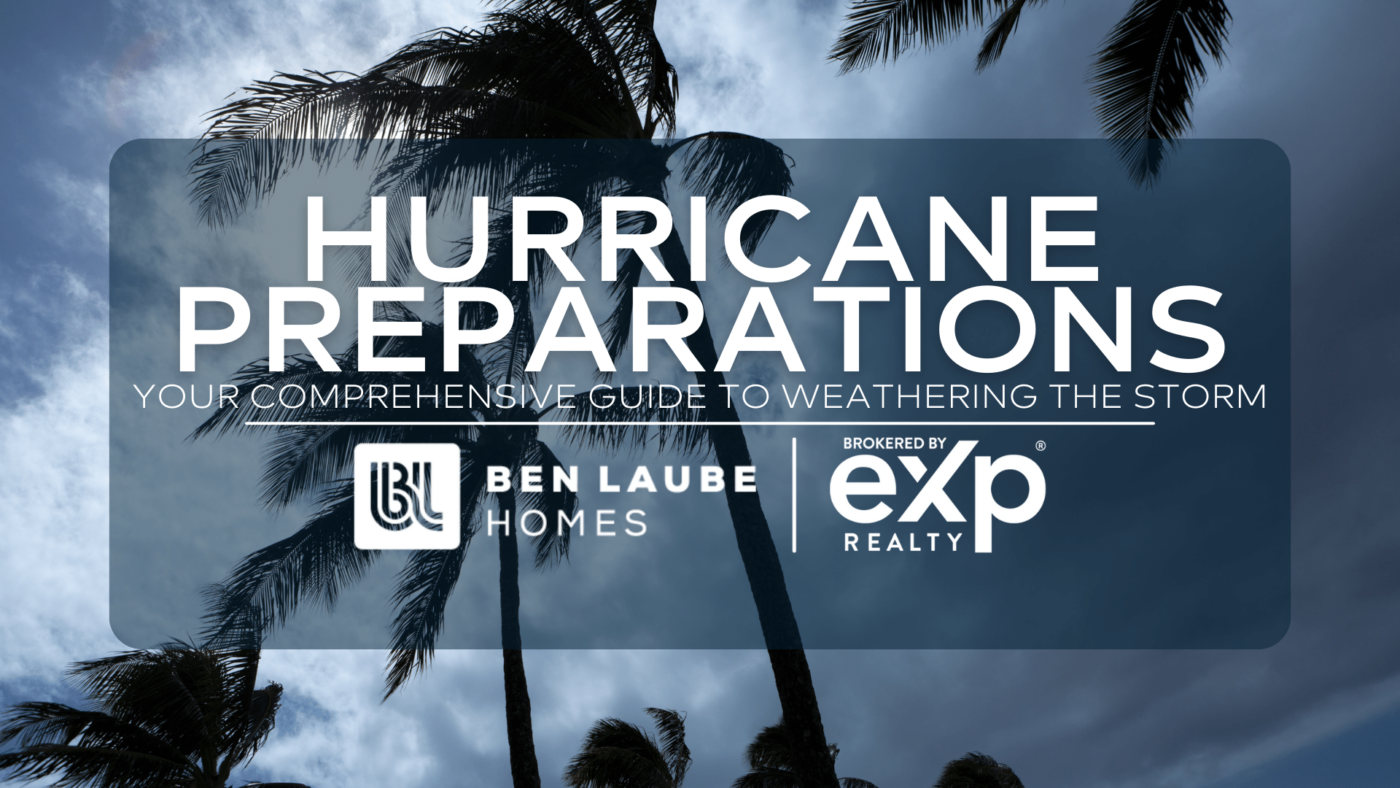As hurricane season approaches, it’s crucial to ensure you and your loved ones are well-prepared to face the potential challenges that these powerful storms can bring. By taking proactive steps and following a comprehensive plan, you can significantly enhance your safety and minimize property damage. In this guide, we’ll walk you through essential hurricane preparedness measures, from assembling an emergency kit to understanding weather forecasts.
Assemble an Emergency Kit

Putting together a well-stocked emergency kit is the cornerstone of hurricane preparedness. Your kit should include non-perishable food, bottled water, medications, a first aid kit, flashlights, batteries, a battery-operated radio, important documents, cash, and personal hygiene items. Customize the kit to meet the needs of your family, including infants, seniors, and pets. Regularly check and update the kit to ensure its contents are in good condition.
Know Your Zone

Familiarize yourself with the hurricane evacuation zones in your area. Emergency management agencies often designate zones based on the risk of storm surge and flooding. Knowing your zone will help you understand evacuation orders and make timely decisions to ensure your family’s safety. Stay informed about local evacuation routes and shelters and plan your evacuation route in advance.
Develop or Review a Family Emergency Plan

Create a detailed family emergency plan that outlines how you will communicate, where you will meet, and what steps to take in various scenarios. Share this plan with all family members and practice it through drills. Assign responsibilities to each family member to ensure a smooth response during the chaos of a hurricane. Consider including contact information for out-of-town relatives as well in case local communication is disrupted.
Review Your Insurance Policies

Before hurricane season arrives, review your insurance policies to understand what is covered and what isn’t. Homeowners insurance may not always cover flood damage, so consider purchasing flood insurance if you live in a high-risk area. Document your home’s condition with photos or videos, which can be immensely helpful when filing insurance claims.
Prepare Your Home

Fortify your home against hurricane impacts by installing storm shutters or boarding up windows and securing outdoor items that could become projectiles in strong winds. Trim trees and bushes near your home to minimize potential damage from falling branches. Reinforce garage doors and other vulnerable points of entry. If you live in a flood-prone area, elevate electrical systems, appliances, and utilities to protect them from water damage.
Understand News Forecast Meanings

Stay informed about hurricane developments by monitoring weather forecasts. Understand the key terms used in forecasts, such as:
- Hurricane Watch: Conditions are favorable for a hurricane to develop. Stay informed and be prepared to act if necessary.
- Hurricane Warning: A hurricane is expected within the specified area. Complete all preparations and follow evacuation orders if issued.
- Tropical Storm Watch/Warning: Like hurricane alerts but for less intense storms. Be cautious and prepared for potential impacts.
Stay tuned to updates from reliable sources such as the National Hurricane Center and local emergency management agencies. Social media, and weather apps can also be excellent tools for receiving real-time information.
Hurricane preparation is not just an option – it’s a necessity. By assembling an emergency kit, knowing your evacuation zone, developing a family emergency plan, reviewing insurance policies, fortifying your home, and understanding weather forecasts, you can significantly enhance your safety and the safety of your loved ones. Remember that the time to prepare is before the storm arrives, so start taking these steps today. Your proactive efforts will make a world of difference when facing the unpredictable forces of nature.

